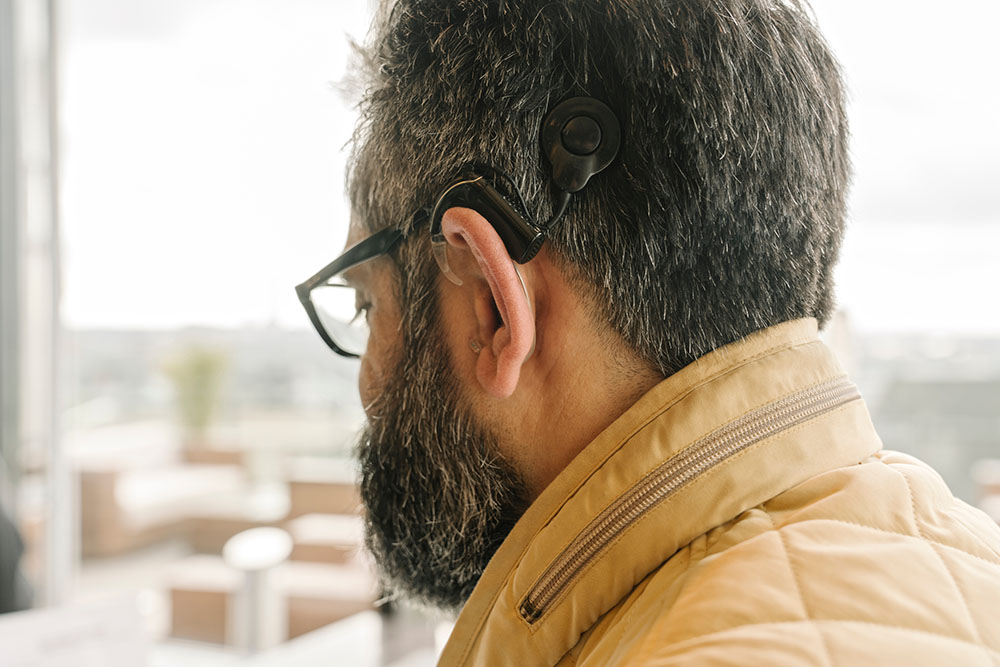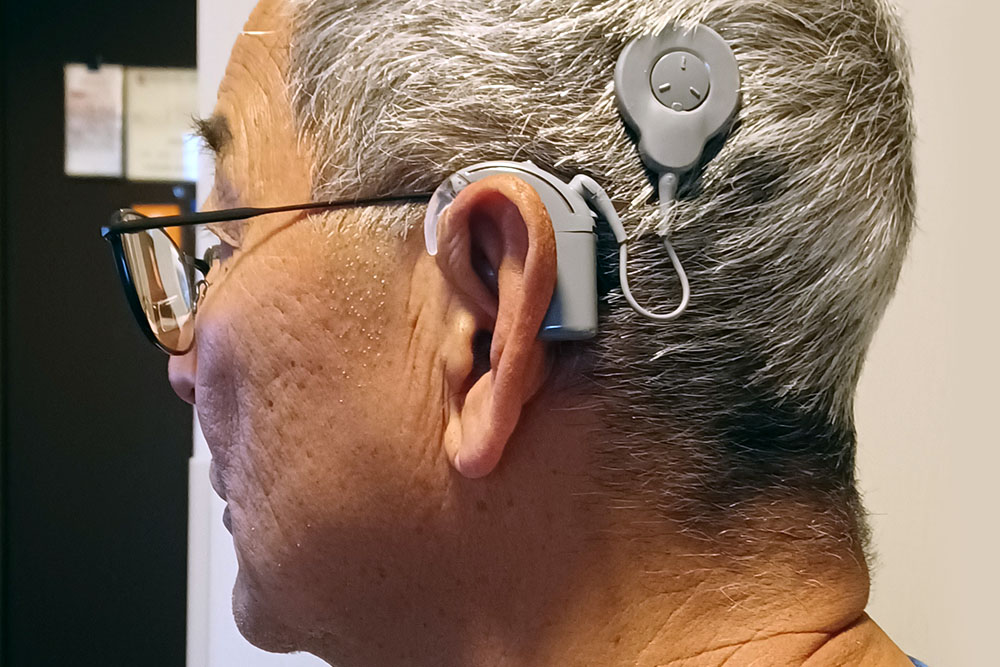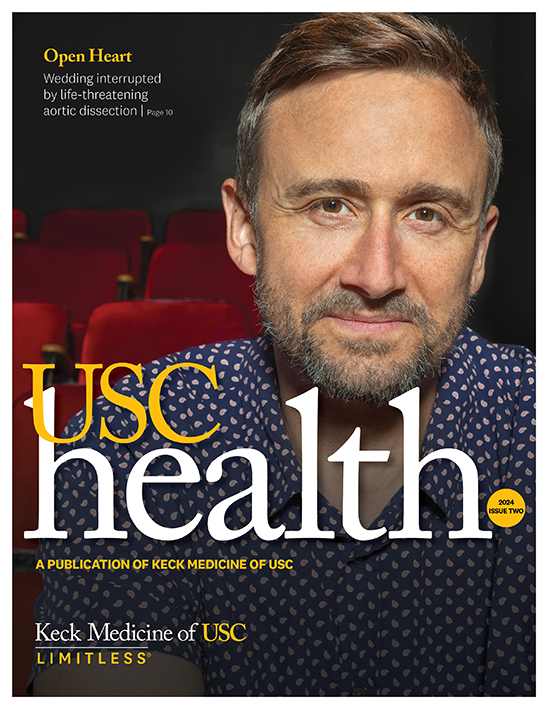
A California grandfather can hear again thanks to an updated rule — and a Keck Medicine audiologist’s bold idea.
Paul Isozaki, a retired high school teacher from Monterey Park, woke up about 10 years ago with sudden hearing loss in his left ear. “Everything was great, and then one day, boom. I couldn’t hear,” he says.
He immediately went to his primary care doctor, who prescribed an antiviral drug and recommended him to an ear specialist. But by the time the specialist could squeeze Paul in, it was too late to save his hearing.
Paul says the provider told him that assuming the problem had been an infection, it must be addressed with steroids within three days to have an effect. “I was upset because they knew I had sudden hearing loss, but they waited a week to see me.”
And Paul, now 70, may never know what caused the sudden damage in his left ear.
“When imaging is done, we can’t necessarily see what has happened to make the nerve stop processing the audio signal,” explains John Parsons, AuD, co-division chief of audiology at the USC Hearing and Balance Center, part of the USC Caruso Department of Otolaryngology – Head and Neck Surgery at Keck Medicine of USC. “If you lose hearing, get to an ENT or an emergency room as quickly as possible because the steroid course is time sensitive.”
Dealing with more hearing problems
For the next decade, Paul learned to live with his hearing loss and even joked about it. “I couldn’t hear my wife nagging at me,” teases Paul. The father of three and grandfather of seven also continued hobbies like dancing, swimming and skiing.
However, a different illness changed the equation. In 2020, Paul was diagnosed with vestibular neuritis, an inner ear disorder that causes balance problems and vertigo.
A severe vertigo episode landed Paul in the emergency room three years later. Raymond Kung, MD, an otolaryngologist who specializes in hearing and balance disorders at the USC Hearing and Balance Center, treated Paul and referred him to Dr. Parsons for new hearing tests.
After meeting with Paul in May 2023, Dr. Parsons told him he was a candidate for a cochlear implant.
The benefits of cochlear implants
“A cochlear implant replaces hearing that is no longer capable of acoustic input,” explains Dr. Parsons, who is also a clinical assistant professor of otolaryngology at the USC Caruso Department of Otolaryngology – Head and Neck Surgery at the Keck School of Medicine of USC.
An external microphone and speech processor connect with electrodes that are implanted in the patient’s inner ear. Dr. Parsons says the internal device is designed to last for life, while the external portions are powered by rechargeable batteries and may receive upgrades over time.
This was a new opportunity for Paul because previously, cochlear implants were only approved for patients with hearing loss in both ears — and without insurance, the device can cost more than $100,000. In 2022, the U.S. Food and Drug Administration expanded coverage to patients like Paul with single-sided hearing loss.
But the surgery was still a bold choice with no guarantee of success because of how long Paul’s hearing loss had been going on. “Outcomes tend to be worse with longer auditory-deprivation periods,” Dr. Parsons says. “I counseled him with low expectations, but Paul was game for it.”
Paul’s hearing loss also put him at increased risk of social isolation and dementia, which further motivated him to give the cochlear implant a try.
Cochlear implant surgery leads to life-changing improvement
Dr. Kung performed cochlear implant surgery at Keck Hospital in December 2023. Paul says he went home the same day and that the incision healed within a week.
Two weeks post-surgery, Dr. Parsons activated the device and started the programming process. Paul says by his second appointment, he could understand words. “I could hear, but it’s a big transition. The sound goes into my brain digitally, so it sounds robotic like a computer,” Paul describes.

Dr. Parsons explains that audibility improves with time, often taking months with the device to recognize familiar sounds. “The brain will do a lot of the work itself,” he says, “but we will continue to fine-tune the cochlear implant so we’re matching the electric current to what Paul’s brain needs.”
He says Paul’s results are encouraging. “His speech-understanding scores have more than tripled since his implant activation,” says Dr. Parsons.
Paul says he feels “very lucky” to have found Keck Medicine — and is grateful to Dr. Parsons for suggesting the cochlear implant. “He’s a great audiologist, and the cochlear implant has opened a whole new world. This device can change your life.”
Topics


